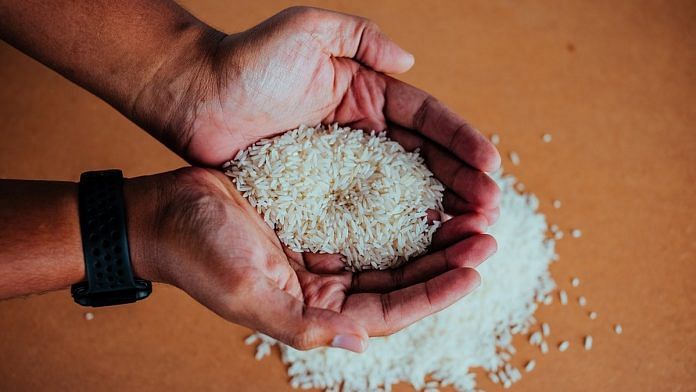Debal Deb is known as the Seed Warrior, having spent the past two decades collecting and preserving India’s increasingly rare indigenous rice species.
The ecologist’s efforts have led to the creation of a massive seed bank, housing more than 1,410 endangered varieties.
The unique collection is an integral part of Deb’s quest to persuade some of India’s farmers to return to growing traditional rice crops. The bank provides the seed source for Basudha, a 1.7-acre farm in the foothills of eastern India’s Niyamgiri mountain range.
Rare seed varieties are individually germinated in traditional clay pots and irrigated using cow urine, before being distributed to farmers to grow. Last year, more than 7,000 farmers in six Indian states benefited from free seeds, with the condition they begin to grow them and give some of their harvest to the local community to help the rural population feed itself.
India consumed 100 million tonnes of rice in 2018-2019, an amount second only to China. Rice is a staple in the world’s two most populous countries, as it is throughout Asia and many other parts of the planet.
Also read: This incurable swollen-shoot disease is killing most of the world’s Cocoa trees
But India’s native rice species are disappearing fast: decreasing from around 100,000 different strains to just 7,000 since the 1970s.
What caused such a dramatic decline?
It goes back to the Green Revolution of the 1960s, when many of India’s farmers switched to high-yield (HYV) seeds, supported by the use of pesticides and fertilizers.
Although the move boosted average grain yields, traditional rice strains – which had supported farming communities for generations – were mostly left behind. Rare strains survived only in hard-to-reach areas, or where farmers were too poor to afford the chemicals needed to propagate high-yielding crops.
“Every time a tiger or a rhino or any charismatic big animal was killed, millions of dollars poured in to support conservation efforts,” Deb explains in an interview with The Better India. But, he says, nobody “batted an eyelash” when traditional rice varieties were lost on such a large scale.
Also read: GM brinjals are helping Bangladesh farmers earn more, save more, study finds
So Deb decided to go it alone. But his project is more than a mere attempt to protect the heritage and cultural identity of village communities – it also aims to safeguard biodiversity.
Some rare varieties are more resilient than high-yield rice strains, making them better able to withstand the impact of droughts, floods, changes in temperature and soil differences.
Crop resilience is especially significant in areas prone to extreme weather events, which are likely to increase as global temperatures warm. The impact of climate change adds further uncertainty to future food security.
Globally, 1 million plant and animal species are threatened with extinction, according to the Intergovernmental Science-Policy Platform on Biodiversity and Ecosystem Services.
New research in the journal Nature Ecology & Evolution reveals a plant extinction rate described as ‘frightening’ by the paper’s authors, with 571 species disappearing from the planet since 1750. The study estimates this rate to be 500 times greater than that expected to occur naturally




Mr. Debal Deb was declared a Naxalite by the West Bengal govt and hounded out of the state. The Odisha govt has been far more receptive of his work with the tribals and poor countryside farmers and has let him continue with his mission.